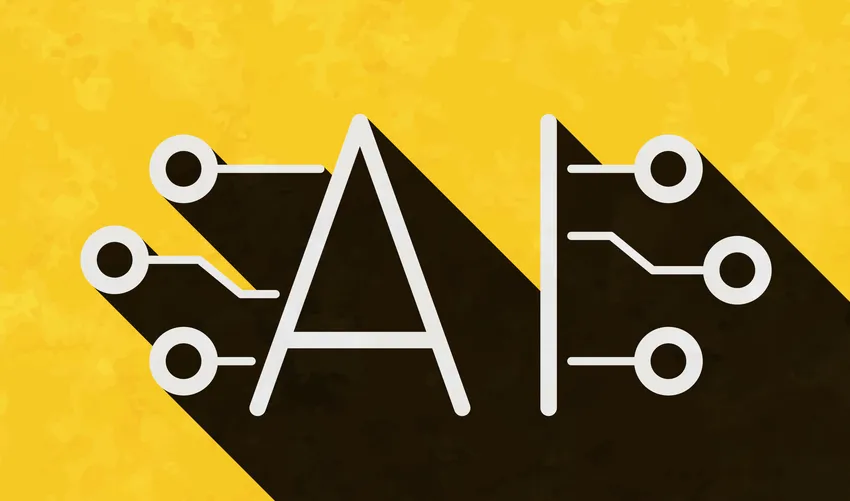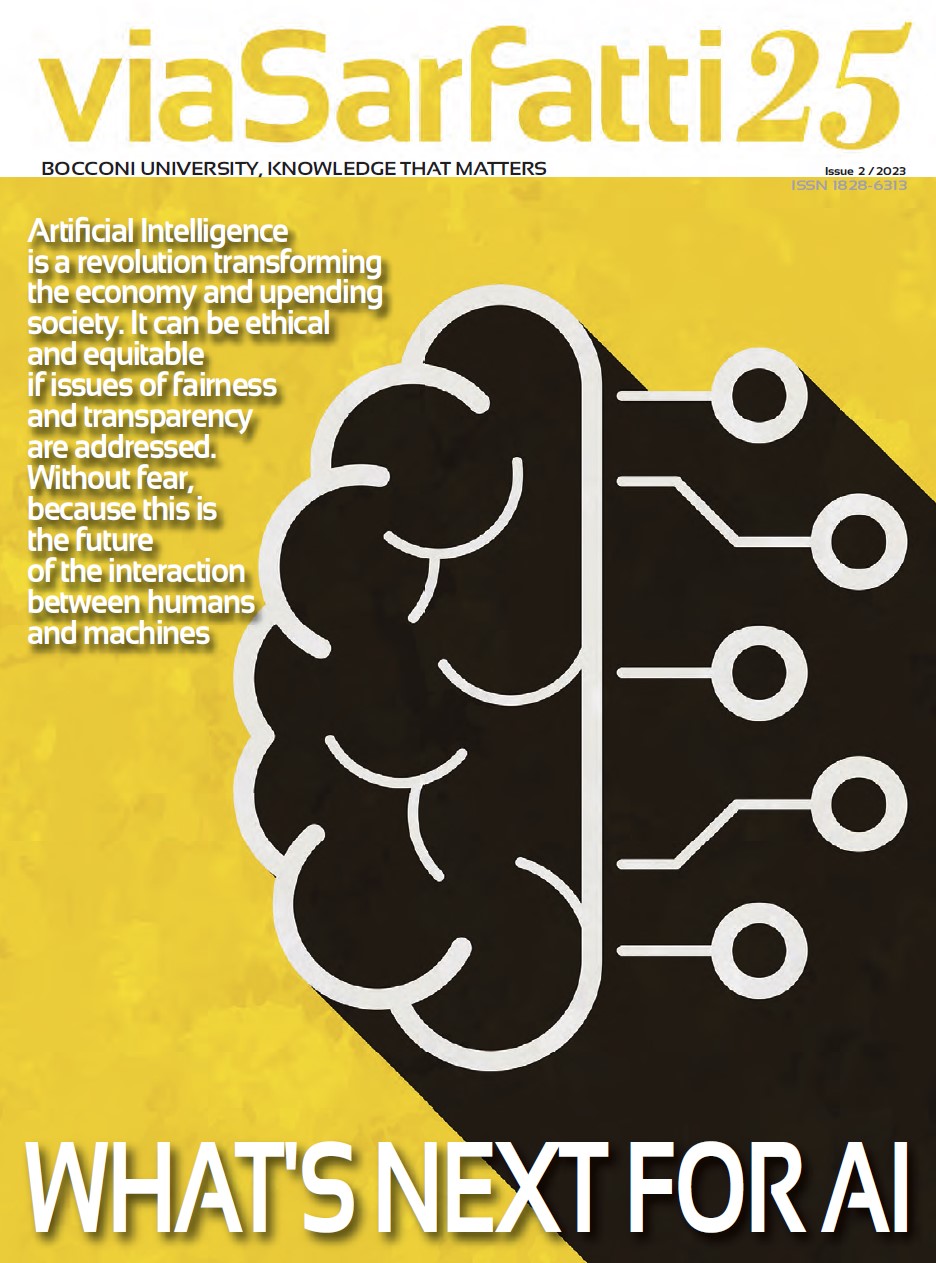
What Artificial Intelligence Has in Store for Us
'What's Next for AI' is the latest issue of Bocconi's online magazine ViaSarfatti25, which the University's editorial team has chosen to dedicate entirely to the hot topic of machine learning and general language models like ChatGPT. In nearly 90 pages, 41 Bocconi academics, 36 editorials, 6 startup stories, and 3 special interviews discuss what Artificial Intelligence is today and what we should expect from its evolution in the near future. The issue was created thanks to the contribution of Bocconi professors engaged in various fields of study, proving that today Artificial Intelligence enters deeply not only in the research of those studying its algorithms, but also in the work of scholars and researchers in the various social science, possibly to obtain results that are difficult or impossible to achieve with traditional methods. A complete mosaic of AI is offered, starting from the scenario analyses on the evolution of artificial intelligence by Riccardo Zecchina, Marc Mézard, and Dirk Hovy, to reflections on the actual functioning and development prospects of these mechanisms (Carlo Baldassi, Daniele Durante and Omiros Papaspiliopoulos, Emanuele Borgonovo, Giacomo Zanella) and concrete examples of how AI is becoming a useful study and research tool. For the study of disease and in the treatment of patients, for example, as described by the editorials by Francesca Buffa, Anna Gatti, Lucia Ferrara and Oriani Ciani, or to apply it to the economy, so as to measure tax evasion, as Marco Battaglini explains, or establish the price of products, as Francesco Decarolis recounts. AI also matters for demography, to study population trends, as is the case with Letizia Mencarini, or in policies regulating migratory flows, as the editorial by Graziella Romeo argues. Not to mention its use in finance, to aid in investment decisions, or in counterterrorism to sift through vast quantities of tweets in order to identify terrorist recruitment networks, as Nicola Limodio explains.
A complete mosaic of AI is offered, starting from the scenario analyses on the evolution of artificial intelligence by Riccardo Zecchina, Marc Mézard, and Dirk Hovy, to reflections on the actual functioning and development prospects of these mechanisms (Carlo Baldassi, Daniele Durante and Omiros Papaspiliopoulos, Emanuele Borgonovo, Giacomo Zanella) and concrete examples of how AI is becoming a useful study and research tool. For the study of disease and in the treatment of patients, for example, as described by the editorials by Francesca Buffa, Anna Gatti, Lucia Ferrara and Oriani Ciani, or to apply it to the economy, so as to measure tax evasion, as Marco Battaglini explains, or establish the price of products, as Francesco Decarolis recounts. AI also matters for demography, to study population trends, as is the case with Letizia Mencarini, or in policies regulating migratory flows, as the editorial by Graziella Romeo argues. Not to mention its use in finance, to aid in investment decisions, or in counterterrorism to sift through vast quantities of tweets in order to identify terrorist recruitment networks, as Nicola Limodio explains.
However, one cannot talk about AI without also mentioning the adverse effects that an inconsiderate use of artificial intelligence can bring. Not only on the ethical and legal front, as underlined in the editorials by Oreste Pollicino and Francesco Paolo Patti, but also on the geopolitical front, with the struggle for control over the material resources necessary for AI development (Andrea Colli), or for the effects on cybersecurity (Greta Nasi). There are also dangers coming from the manipulation of public opinion through the distortion of information (Gaia Rubera) or the dissemination or reaffirmation of biases and stereotypes due to the way algorithms are trained (Carlo Rasmus Schwarz, Luca Trevisan).
And then there is the business world, with reflections on the advantages of bringing AI into the company (Gianluca Salviotti and Lorenzo Diaferia, Giuseppe Stabilini) and with six startup stories that have made artificial intelligence their core resource to develop their business. The stories of these fledgling companies, many of which are being incubated by the Bocconi B4i accelerator, are complemented by the point of view of Nader Sabbaghian, Bocconi faculty member and Capital 360 investor and general partner.
This special issue therefore gives an all-round view of AI, communicating the transversal nature that this new technology has in all fields of study. And it is precisely this vision that has led Bocconi University to acquire the best international talent and expertise on AI in terms of research and teaching in recent years. An effort crowned by the creation of a specific Department devoted to Computing Sciences last year, and this year by the launch of the new Master of Science in Artificial Intelligence, which is the graduate prolongment of the Bachelor of Science in Mathematical and Computing Sciences for Artificial Intelligence (a three-year undergraduate program).